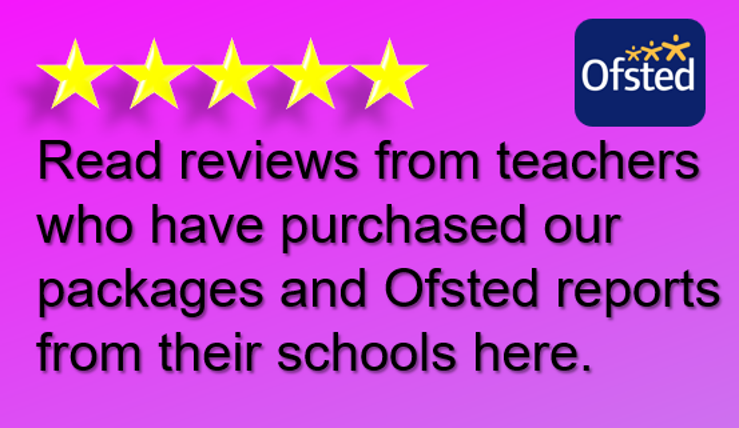
2020 - The Year of PSHE
Brian Reeve-Hayes, PSHE specialist and Education Consultant, gives his top tips on how to prepare for the upcoming Statutory PSHE Guidelines for 2020.
I’m calling 2020 “The Year of PSHE” because that is the date the new DfE guidelines become statutory. The bad news is there is a LOT for schools to cover with very little guidance given in the statutory guidelines, but the good news is that there are a ton of resources and support out there. The guidelines are just that…GUIDELINES. How you teach topics and how much time is allocated to each one is up to the individual school. This blog post will be about how you can start planning your PSHE provisions so come 2020, you’ll be confident you have done what you can to ensure the guidelines are met.
Let’s start with “what are the new requirements?”
The Health Education and Relationships Education (primary) and the secondary Relationships and Sex Education (RSE) as well as Health Education aspects of PSHE education will be compulsory in all schools from 2020. For a copy of the guidelines see Statutory guidance for Relationships education, relationships and sex education (RSE) and health education.
The guidance outlines what schools must cover, not necessarily everything that schools should cover. The Department for Education (DfE) states: ‘All elements of PSHE are important and the government continues to recommend PSHE be taught in schools’. This simply means that your PSHE provision should reflect your school’s needs. If there are particular topics that are important for your school but not included in the new guidelines, you should continue teaching them. Education secretary Damian Hinds says that schools covering health and relationships education successfully through PSHE should continue to do so.


PSHE lessons will be observed as part of a whole school Section 5 inspection, so inspectors will expect the same standards of teaching and learning as they would in any other subject. Poor PSHE education lessons can therefore impact on a school’s overall judgment for quality of teaching, learning and assessment.
All schools must have an up-to-date policy, which is made available to parents and others. Schools must provide a copy of the policy free of charge to anyone who asks for one and should publish the policy on the school website.
How do we start?
If your school has the funds, one great way to prepare is by joining the PSHE Association. The support and resources they offer are INVALUABLE. While there are many things they offer for free, much of the actual planning stuff is for members only.
Another fantastic (and free) resource is the Planning PSHE Kit from EC Resources. The pack contains complete Secondary PSHE half-termly schemes of work for Year 7, Year 8, Year 9, Year 10 and Year 11 for the new PSHE + RSE 2020 statutory guidelines. This also includes a PSHE audit tool to go with the EC Resources Complete KS3 and KS4 PSHE Pack – which is a great investment if you want to get all of your planning sorted in one swoop, as everything is mapped to PSHE Association latest codes for statutory 2020 PSHE teaching too.
The PSHE Association and The Sex Education Forum have also created a document Roadmap to statutory RSE which will walk you through, step by step on getting your school ready. For gaining support from peers who are also working towards implementing the new changes, there are some fantastic online groups you can join too, such as the PSHE, RSE and Citizenship Facebook Group which is run in part by The RSE Service – who offer fantastic training and workshops on RSE throughout the UK.
Under the new guidelines schools are required to have a parent consultation on RSE as well as a RSE policy available on their website. In my school, I did several things to ensure we had the data available to back up how our school is approaching PSHE. I started with a teacher and staff survey using Teacher questionnaire: PSHE education. I made it easier by making a Microsoft Form (or use Google forms) that I sent out to staff electronically. It makes compiling the data WAY easier. I also help student consultations by using.
Schools should not stop what they’re doing well to introduce additional subjects just to comply with the new guidelines. If you have a program that works, keep it going! You may need to make some slight tweaks to ensure the new guidelines are addressed in some way. You should avoid ineffective models of delivery such as ‘drop down’/’off timetable’ days. These methods can certainly be used to enhance your provision, but evidence shows that using them exclusively for your PSHE provision is not effective. For more information on delivery modes see The PSHE Associations documents Models of delivery for PSHE education and the use of vertical tutor groups. I know many PSHE leads have been struggling with getting the school to buy in to proper PSHE lessons. Using these documents can help you formulate your argument. Another point to emphasise is that certain topics such as consent, sexual health, and mental health will not be effective is taught by a person who is not comfortable and hasn’t established a trusting relationship with students. Make a clear point that students will not respond to a lesson in sexual consent from a teacher who covered it for 15 minutes in form time. It will simply not work.
My final words of wisdom: DO NOT GET STRESSED OUT! You have a year to plan, and even then, OFSTED and DfE understand that this is all new. There are many schools, including mine, that are “Early Adopters”. This means we will be working hard this year with the DfE in creating resources and guidance for schools. You will not be left alone in this process, so please allow yourself to relax about it. It all seems quite overwhelming, but there are plenty of people to help you, and there will be more. Take it slow and allow yourself the time to do this properly. You have LOADS of time! Nobody is going to be critically assessed right now, and most likely the first year is going to be a bit dishevelled. Everyone knows this and will be understanding if it’s not all perfect just yet.
At EC Publishing, we're adding new, free resources every week - including PSHE lessons. Check them out here:




